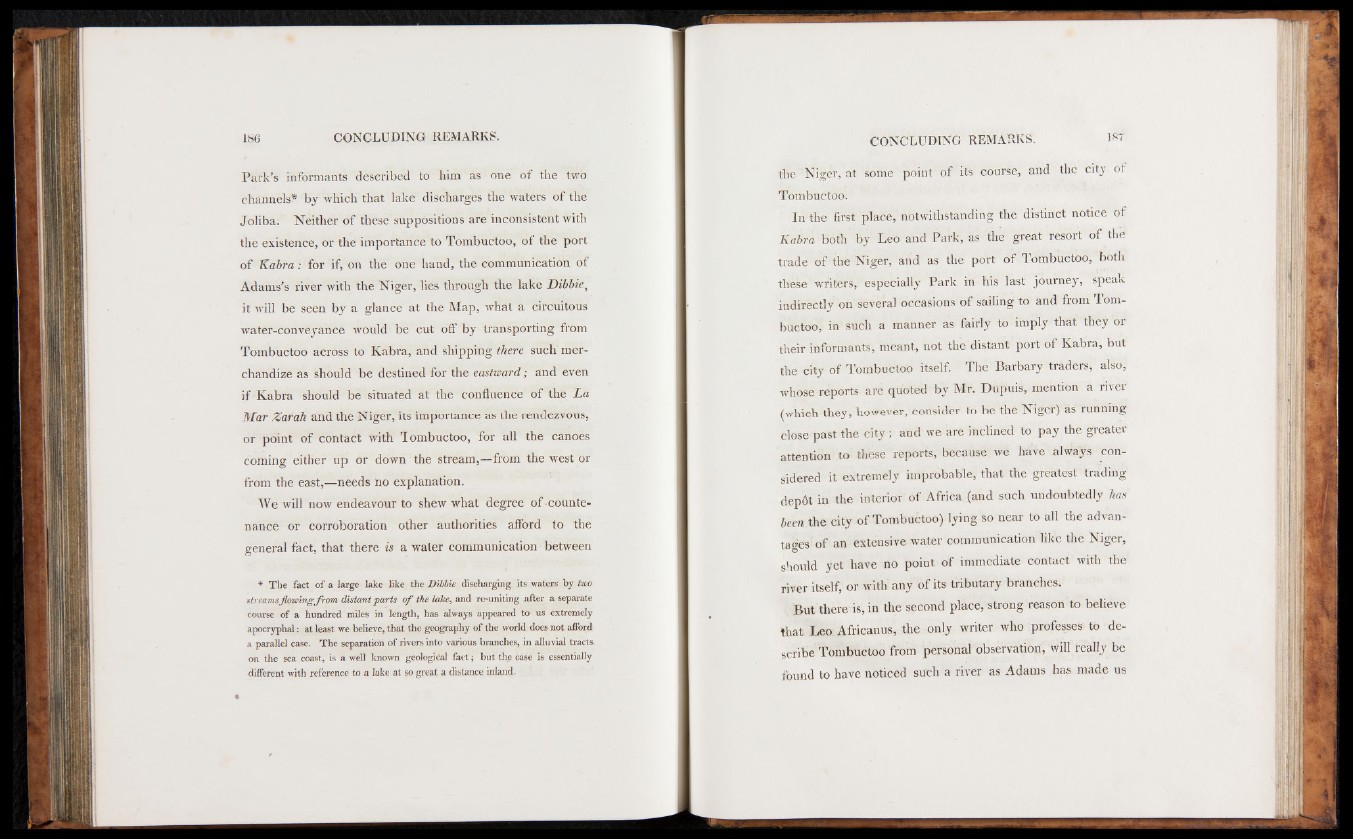
Park’s informants described to him as one of the two
channels^ by which that lake discharges the waters of the
Joliba. Neither of these suppositions are inconsistent with
the existence, or the importance to Tombuctoo, of the port
of Kabra : for if, on the one hand, the communication of
Adams’s river with the Niger, lies through the lake Dibbie,
it will be seen by a glance at the Map, what a circuitous
water-conveyance would be cut off by transporting from
Tombuctoo across to Kabra, and shipping there such merchandize
as should be destined for the eastward ; and even
if Kabra should be situated at the confluence of the La
Mar Zarah and the Niger, its importance as the rendezvous,
or point of contact with lombuctoo, for all the canoës
coming either up or down the stream,—from the west or
from the east,—needs no explanation.
We will now endeavour to shew what degree of countenance
or corroboration other authorities afford to the
general fact, that there is a water communication between *
* The fact of a large lake like the Dibbie discharging its waters by too
streams flowing from distant parts o f the trike, and re-uniting after a separate
course of a hundred miles in length, has always appeared to us extremely
apocryphal: at least we believe, that the geography of the world does not afford
a parallel case. The separation of rivers into various branches, in alluvial tracts
on the sea coast, is a well known geological fact; but the case is essentially
different with reference to a lake at so great a distance inland.
the Niger, at some point of its course, and the city of
Tombuctoo.
In the first place, notwithstanding the distinct notice of
Kabra both by Leo and Park, as the great resort of the
trade of the Niger, and as the port of Tombuctoo, both
these writers, especially Park in his last journey, speak
indirectly on several occasions of sailing to and from Tombuctoo,
in such a manner as fairly to imply that they or
their informants, meant, not the distant port of Kabra, but
the city of Tombuctoo itself. The Barbary traders, also,
whose reports are quoted by Mr. Dupuis, mention a river
(which they, however, consider to be the Niger) as running
close past the city ; and we are inclined to pay the greater
attention to these reports, because we have always considered
it extremely improbable, that the greatest trading
dep6t in the interior of Africa (and such undoubtedly has
been the city of Tombuctoo) lying so near to all the advantages
of an extensive water communication like the Niger,
should yet have no point of immediate contact with the
river itself, or with any of its tributary branches.
But there is, in the second place, strong reason to believe
that Leo Africanus, the only writer who professes to describe
Tombuctoo from personal observation, will really be
found to have noticed such a river as Adams has made us